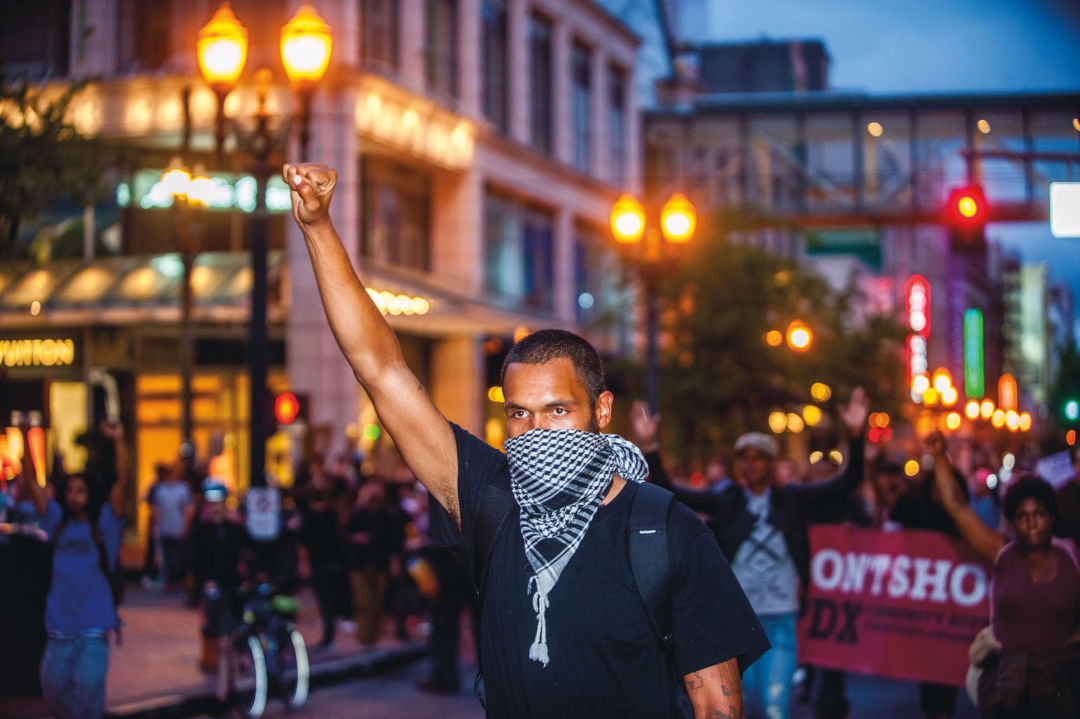This Group Has a Plan to Change Policing at Protests

Scenes from a protest in downtown Portland.
Portland should fully ban the use of CS gas by police, restrict targeted munitions like rubber bullets and grenades, and require police officers to go through documented anti-racism training, according to recommendations presented to the city council on Wednesday by a volunteer group charged with reviewing the city’s policing policies in the wake of the racial justice protests of summer 2020.
City Council members unanimously accepted the report prepared by the Citizen Review Committee, voting to accept its findings—but that doesn’t mean Portlanders will see concrete changes any time soon.
And with so many competing interests and responsibilities, tangible solutions can be scarce. Even Commissioner Jo Ann Hardesty, City Council’s fiercest advocate for police reform, acknowledged Wednesday that the process will be a tough one, saying, “We will have to weigh choices between how we invest limited dollars. And I know there’s a divide on the council about where those investments make the most sense."
Mayor Ted Wheeler was quick to emphasize the reforms that Portland has already implemented, like banning CS gas and requiring bias training for all members of the Portland Police, alongside some statewide changes.
In the 2020 legislative session, Oregon lawmakers passed new laws establishing use of force databases and a civilian review board that would oversee police misconduct charges. But few changes were made to interrupt police misconduct before it happens. Oregon did pass a law limiting police’s use of munitions, but what those limits actually are and how they’ll be enforced remains unclear.
In 2020 alone, the Portland Police Bureau racked up 6,000 documented instances of force, prompting the United States Department of Justice to put the city of Portland on formal noncompliance with a 2014 settlement designed to reduce police bias and violence.
Members of the CRC say their report was informed by community feedback, gathered at the height of the 2020 protests.
“Our job is to represent the community,” says Candace Avalos, chair of the CRC. “I think the police have plenty of representation, their city lawyers, their city leadership, their bureaus. They have plenty of voice in City Hall and its decisions. It's the community that is lacking the voice, and that is where we are filling in that responsibility.”
The group’s other recommendations included adopting rules to stymie environmental and public health impacts when using chemical weapons. Additionally, the CRC recommended that police officers show up to protests in “soft clothes” instead of helmets, full body armor, and shields, which can imply the expectation of combat.
Avalos, herself a former candidate for city council, says Portland has made some strides towards police reform reform—but, she says “the ways that the city goes about implementing, frankly, any change are convoluted, disorganized, and not super collaborative.”
Still, Avalos says she has confidence that, in the current highly-charged political moment, things can be different this time. Moving forward, all eyes will be on city council, the Independent Police Review, and the Joint Police Reform Task Force to make some real changes in use of force policy.




